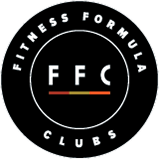What You Should Know Before Taking Dietary Supplements
The use of dietary supplements seems to be more popular than ever, with more than three quarters of Americans taking them yearly. However, only about a quarter of supplement users have confirmed test results indicating a nutrient deficiency.
While dietary supplements can be prescribed by a doctor, many supplements can easily be purchased over the counter for anyone to use. Supplements do have a purpose and can be beneficial in certain scenarios, but it is important to be informed regarding potential risks associated with purchasing and using supplements.
So, What Can Dietary Supplements Do?
Supplements can be used to:
- treat nutrient deficiencies
- help increase intake of essential nutrients that may help reduce the risk of certain chronic diseases
- and/or support nutrient delivery for exercise or when food sources are limited.
It is best to obtain these nutrients through food first unless otherwise recommended by your healthcare provider. Supplements are to be used as a “supplement” to nutrients from food or as a secondary course of action if assistance with nutrient levels are needed.
Therefore, supplement intake should be considered and recommended on a case-by-case basis, so be sure to refer to your Registered Dietitian and physician regarding your nutrient levels and when considering supplement use.
Related: The Truth About Intermittent Fasting
Types of dietary supplements can include ingredients such as:
- Vitamins
- Minerals
- Herbs
- Amino acids or proteins
- Enzymes
Supplements also come in a variety of different forms, such as:
- Tablets
- Capsules
- Soft gels
- Powders
- Liquids (shakes, smoothies, sports drinks, etc.)

Things To Consider Before Taking Dietary Supplements
The major risk associated with the use of supplements is in how they are regulated. Some facts to consider are:
- Manufacturers do not need FDA approval to sell their supplements.
- The FDA regulates supplements as food, not drugs. They do not receive an actual approval; they only monitor manufacturers to ensure they are compliant with regulations.
- The FDA does not review dietary supplements for safety, effectiveness or mislabeling of ingredients before they are marketed.
- Supplement companies cannot state that their products cure, treat or prevent diseases of any kind.
- Some supplements are third-party tested by the USP or NSF. The USP verifies whether the product was made in a clean and controlled facility and ensures proper labeling of ingredients and quantities. The NSF is similar to the USP, but they also conduct testing for safety and ensure there are no contaminants. These are good certifications to look for if you are in the market for a supplement.
Other risks to consider:
- Supplements can have interactions. Taking a wide array of dietary supplements could have adverse effects in combination with other supplements or certain drugs.
- Know the recommended dosage. Taking too much of a supplement can have adverse effects.
Related: What’s The Difference Between A Nutritionist and A Registered Dietitian?
Tips For Choosing A Dietary Supplement
- “Natural” does not always mean safe.
- Question claims that sound too good to be true. For instance, if they make claims that it cures or prevents a disease, that it’s completely safe, that it has no side effects, weight loss claims, or claims to be better than a prescription drug.
- Consult a healthcare professional before starting a dietary supplement.
- Research supplements through the NIH, FDA, or USDA.
- Search for supplements that have been third-party tested (NSF certification, USP verification)
What’s The Deal With Supplements For Exercise?
There are both pre-workout and post-workout supplements on the market. Pre-workout supplements often include stimulants, buffers and creatine. Users supplement these to try to increase their energy, stamina, recovery, muscle repair and muscle strength during exercise. Post-workout supplements like BCAAs are often used to try to enhance muscle repair and building after exercise. Most of the research done on these supplements are not long-term studies for safety and effectiveness. If they work for you, great! Still, always be sure to consult a health professional.
It is important to note that all of these nutrients are found abundantly in the foods we eat. Stimulants are found in coffee, tea and even chocolate. Buffers and BCAAs are found in most protein rich foods like meats, dairy products and nuts, and creatine is found in most animal meats. However, if you are interested in supplementing them, be aware of the side effects associated with each supplement, the possible risk of supplement contamination and the regulation of supplements.
Schedule a complimentary 15-minute discovery call with one of our Registered Dietitians at ffc.com/nutrition to learn more & find out if supplements are right for you.
References:
- Center for Food Safety and Applied Nutrition. What you need to know about dietary supplements. U.S. Food and Drug Administration. https://www.fda.gov/food/buy-store-serve-safe-food/what-you-need-know-about-dietary-supplements. Accessed November 29, 2021.
- Commissioner Oof the. Dietary supplements. U.S. Food and Drug Administration. https://www.fda.gov/consumers/consumer-updates/dietary-supplements. Accessed November 29, 2021.
- Dietary supplement use reaches all time high. Dietary Supplement Use Reaches All Time High | Council for Responsible Nutrition. https://www.crnusa.org/newsroom/dietary-supplement-use-reaches-all-time-high. Accessed November 29, 2021.
- Dietary supplements fact sheet – sportsrd.org. https://www.sportsrd.org/wp-content/uploads/2018/11/Dietary-Supplements-Fact-Sheet.pdf. Accessed November 29, 2021.
- Poll finds 86% of Americans take vitamins or supplements yet only 21% have a confirmed nutritional deficiency. American Osteopathic Association. https://osteopathic.org/2019/01/16/poll-finds-86-of-americans-take-vitamins-or-supplements-yet-only-21-have-a-confirmed-nutritional-deficiency/. Published July 19, 2019. Accessed November 29, 2021.
- Should you take dietary supplements? National Institutes of Health. https://newsinhealth.nih.gov/2013/08/should-you-take-dietary-supplements. Published July 13, 2017. Accessed November 29, 2021.

Post written by FFC Dietetic Intern Lindsay Jarger.


